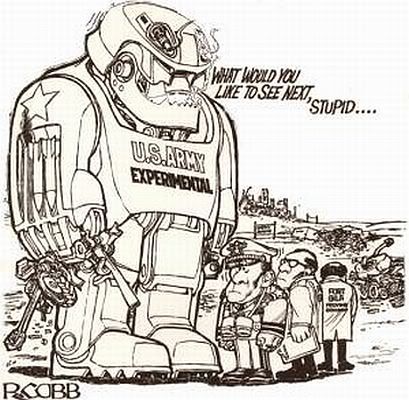Ill today, so I'll be brief.
One:
Bad AI? read 'I Have No Mouth And I Must Scream', Harlan Ellison. Don't think that'll happen.
Two:
Good AI? Read the Culture novels by Iain Banks. I'd rather be a citizen of the Culture than of the Federation, hands down, every time. While the Culture's Minds (AIs) are vastly superior to humans, they have no malice towards us at all, realising we have enough on our own, which they have to sort out.
Three:
An AI that was in charge, in effect the Government? You're all forgetting something. True Government isn't about ruling over a people (which is not the same as leadership), a True Government is the SERVANT of the people. It undertakes to fulfil the will of the people. How that will would be expressed to an AI is perhaps a better issue to discuss.
Four:
Worried an AI will take over? Suggestion from 'Neuromancer' by William Gibson: strap a small EMP device to the side of the main core. Like holding a permanent pistol to the head. Blunt but effective. The AI doesn't need to know it's there, it's a last option thing. The only problem with that - if the enemies of the country get hold of the code that could bring it down. To counter that - an inactive version of the core, and backup storage and 'restore points' like XP has. Or something. I'm ill, you know.
Andf in conclusion a cartoon for CutttingEdge100 :
:

One:
Bad AI? read 'I Have No Mouth And I Must Scream', Harlan Ellison. Don't think that'll happen.
Two:
Good AI? Read the Culture novels by Iain Banks. I'd rather be a citizen of the Culture than of the Federation, hands down, every time. While the Culture's Minds (AIs) are vastly superior to humans, they have no malice towards us at all, realising we have enough on our own, which they have to sort out.
Three:
An AI that was in charge, in effect the Government? You're all forgetting something. True Government isn't about ruling over a people (which is not the same as leadership), a True Government is the SERVANT of the people. It undertakes to fulfil the will of the people. How that will would be expressed to an AI is perhaps a better issue to discuss.
Four:
Worried an AI will take over? Suggestion from 'Neuromancer' by William Gibson: strap a small EMP device to the side of the main core. Like holding a permanent pistol to the head. Blunt but effective. The AI doesn't need to know it's there, it's a last option thing. The only problem with that - if the enemies of the country get hold of the code that could bring it down. To counter that - an inactive version of the core, and backup storage and 'restore points' like XP has. Or something. I'm ill, you know.

Andf in conclusion a cartoon for CutttingEdge100
 :
:
Last edited:





